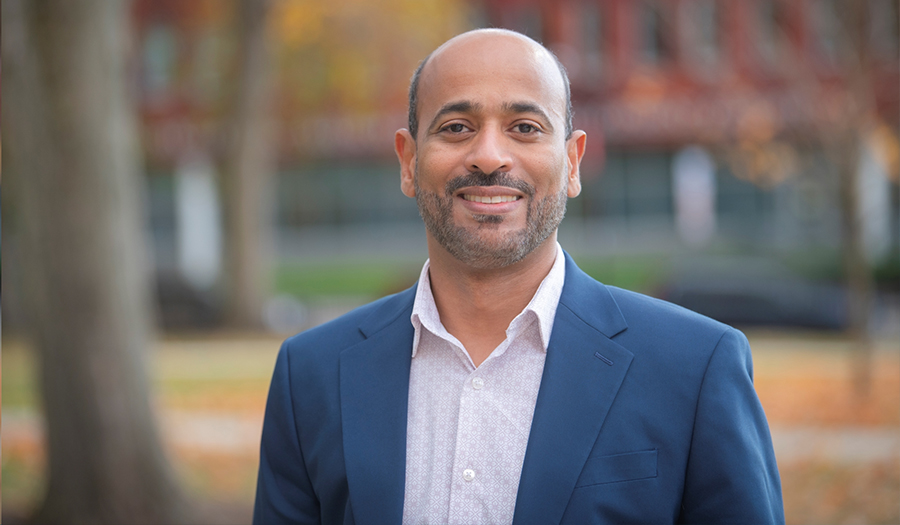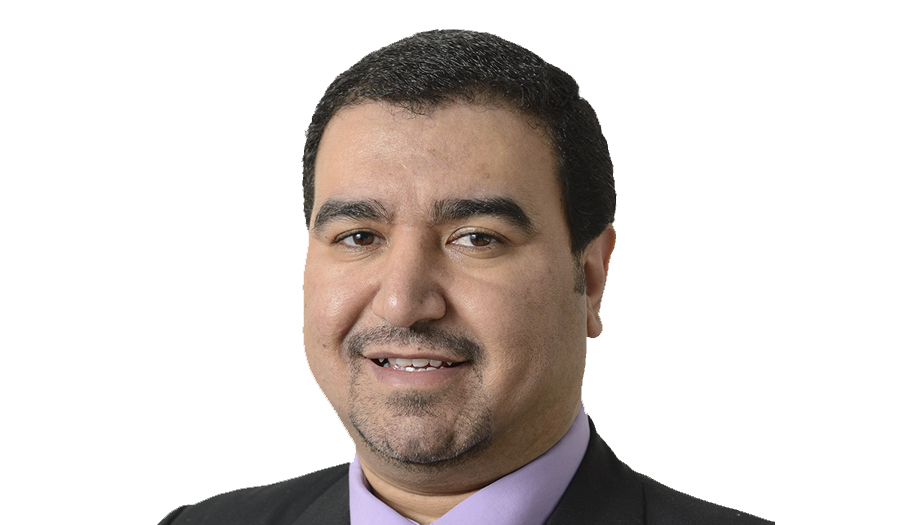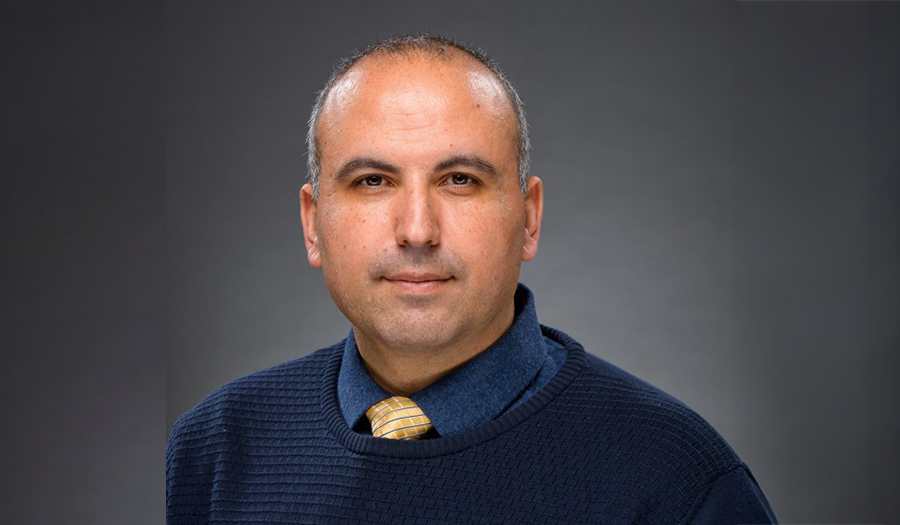Be in demand across industries
Professionals skilled in leveraging AI technologies are in high demand across industries. A Master’s in Applied Artificial Intelligence (MSAAI) from Clark University equips you with the critical skills and hands-on experience needed to excel in an AI-driven career.


Why a MS in Applied Artificial Intelligence?
- Expert faculty: Classes are taught by industry experts and academics at the forefront of AI practice and research, ensuring you learn the latest AI techniques.
- Practical learning: Our program’s focus on hands-on projects and real-world applications develops skills that translate directly to careers in AI.
- Focus on ethics: You will graduate with a deep understanding of AI’s ethical challenges and societal impacts while understanding how to develop and deploy AI responsibly.
- Program flexibility: Our electives offer you the option of gaining in-depth expertise in a focused area of AI or tailoring your courses to align with your AI career goals
- Generous scholarships: Both U.S. and international students are eligible for scholarships. Merit-based scholarship awards are assessed during the application review process and no additional application is required.
Career Outcomes
Your degree from the MSAAI program will position you for AI roles across industries, including:
- AI Engineer
- Machine Learning Engineer
- Data Scientist
- AI Research Scientist
- Business Intelligence Developer
- Computer Vision Engineer
- AI Consultant
- AI Product Manager
Program Structure and Curriculum
Full time students may complete their degree requirements in as little as three semesters/18 months.
10 Units of study include seven required core courses and three concentration courses. Students who do not wish to pursue a concentration may select three elective courses.
Meet our Faculty Practioners

Dr. Khalad Aboalayon
Academic Director, MSDA
Dr. Khald Aboalayon is the academic director of the MS in Data Analytics Program at Clark University and holds a Ph.D. in Computer Science and Engineering from the University of Bridgeport.
Learn more about Khalad
His research focuses on applying Machine Learning and Statistical methods to develop advanced Signal Processing models, with an emphasis on bio-physiological signals and healthcare systems. His research aims to address real-world challenges and enhance systems primarily serving human health needs. With extensive experience in AI and data analytics, he teaches Applied Machine Learning, Linear Regression & Time Series courses, and supervise capstone projects, guiding students in solving practical real-world problems.

Dr. Ahmed El-Sayed
Associate Professor, ECE
Dr. Ahmed El-Sayed received a Ph.D. in Computer Engineering from the University of Bridgeport, Bridgeport. Currently, he is Associate Professor of Electrical and Computer Engineering, at the University of Bridgeport, and Lecture of Applied Machine and Deep Learning at the School of Professional Studies (SPS) at Clark University.
Learn more about Ahmed
He is a member of the Honor Society of Phi Kappa Phi, the Honor Society for Computing, and Information Disciplines Upsilon Pi Epsilon (UPE), the Computer Vision Foundation (CVF), ASEE, ACM, and IEEE. He published papers in the fields of machine learning, robotics, soft computing, and computer vision. His research interests include autonomous systems, artificial intelligence, deep learning, soft computing, machine learning, and computer vision.

Dr. Emre Tokgoz
Dr. Emre Tokgoz completed two independent Ph.D. degrees (one in mathematics and another one in Industrial Engineering) in the U.S. and four master’s degrees (one M.S. in mathematics, one M.A. in mathematics, one M.S. in computer science, and another M.S. in Engineering Management with Biomedical Engineering concentration).
Learn more about Emre
He has more than 14 years of professorship experience by teaching and conducting research as a professor of Mathematics, Computer Science, Industrial Engineering, and cybersecurity related programs. He has extensive Artificial Intelligence experience in both real-life settings and research-based theoretical work. His active research areas with peer-reviewed publications include Artificial Intelligence theory and practice, optimization, aerospace/engine design advancement and development, network security, cryptography, systems’ design and improvements, STEM education, biomedical engineering, supply chain, transportation, and systems’ design and improvement. He has five published books with Springer publishing house and more than 90 peer-reviewed articles and book chapters.
Academic Excellence. Global Reach. Career Success.
Join our supportive community of scholars. Ready to take the next step?

